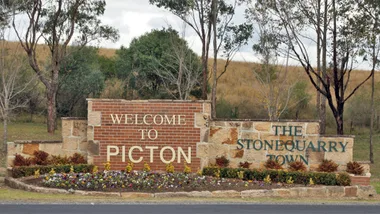New wives who have already promised to honour and “submit” to their husbands could find their marriages are not legally viable.
A proposal by the Anglican diocese in Sydney that a woman must pledge to “honour and submit to [her husband] as the church submits to Christ”, has sparked heated debate amongst social commentators and raised tensions within the church.
Related: Church wants women to ‘submit’ to their husbands
Now it has been found that as well as being sexist, the vows may also be illegal.
The proposed vows have been used by some Sydney churches within the Sydney Anglican Diocese, but have not been authorised by the Anglican Church of Australia.
Under the Marriage Act, a religious ceremony must use a service authorised by the religion’s governing body.
Considering suggestions from the an expert on church law, the Attorney-General has weighed in, responding to concerns of the wedding service’s compliance with federal laws.
“Under the Marriage Act, ministers of religion may use any form and ceremony recognised as sufficient for the purpose by their religious organisation, in this case the Anglican Church of Australia,” a statement from the Attorney-General’s office said.
The move to authorise the new vows has also prompted criticism within the church.
Archdeacon John Davis from the Wangaratta Diocese in Victoria, an expert in Anglican doctrine, raised concern over the legality of the vows, and recognised the wording carried “unpleasant connotations”.
As well as raising legal concerns, Dr Davis told the Sydney Morning Herald that the word “submit” had never been used as part of the marriage vow in the Book of Common Prayer, and questioned whether it was a valid substitute.
Related: Female athletes fly economy, men fly business
Dr Davis said it was even uncommon for brides to agree to use the word obey in their vows.
“In all my 35 years as a priest, I have only ever had one bride who even wanted to use the word obey, and she was 60 years old,” he said.
There has also been suggestions from within the church that the controversy may have to be settled in a national church tribunal.











